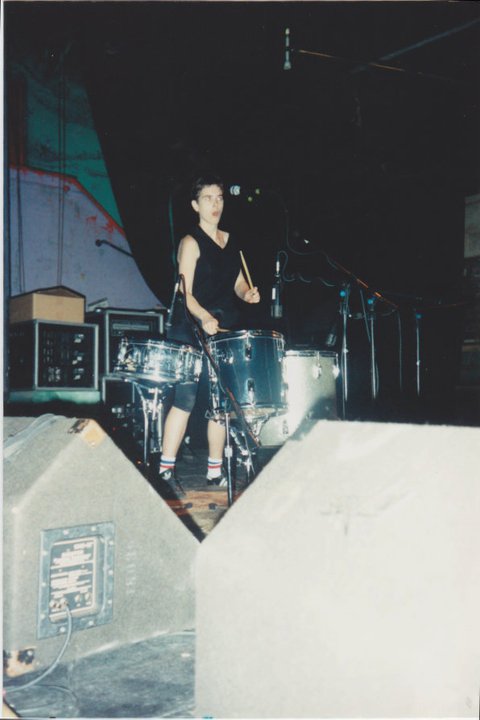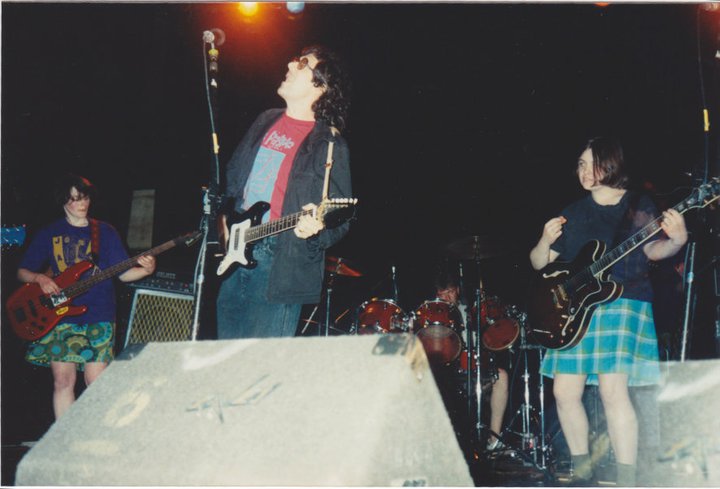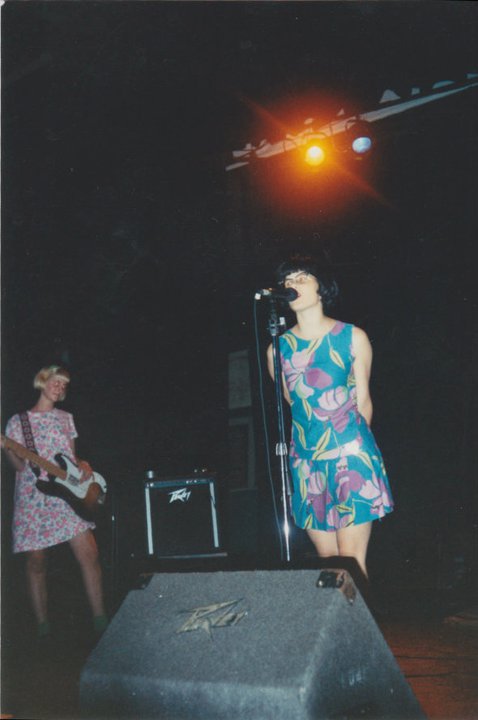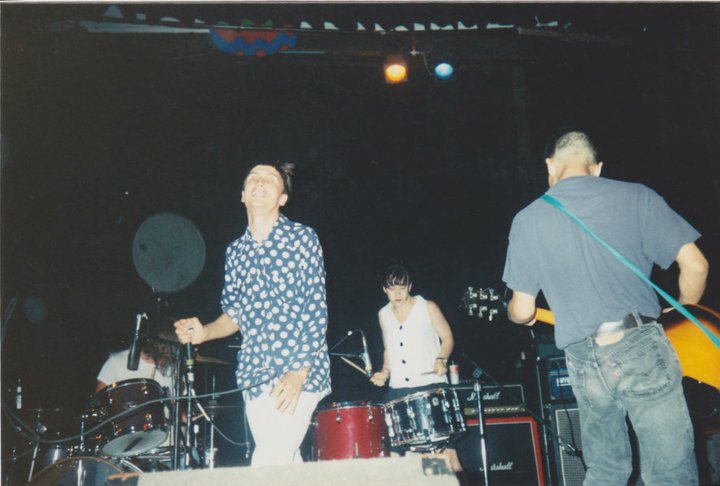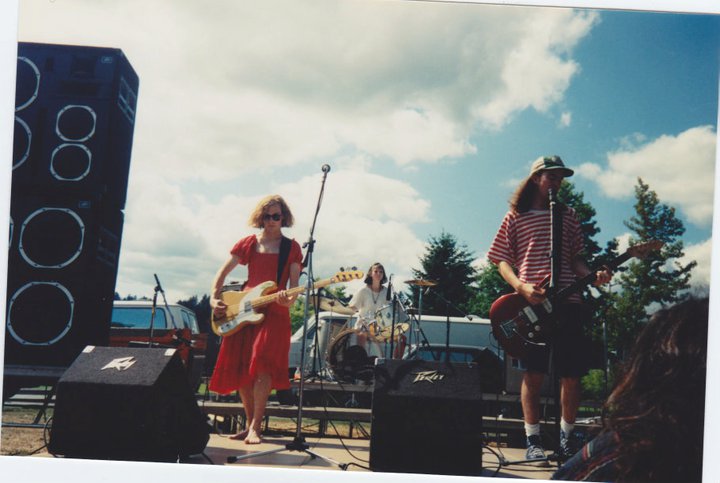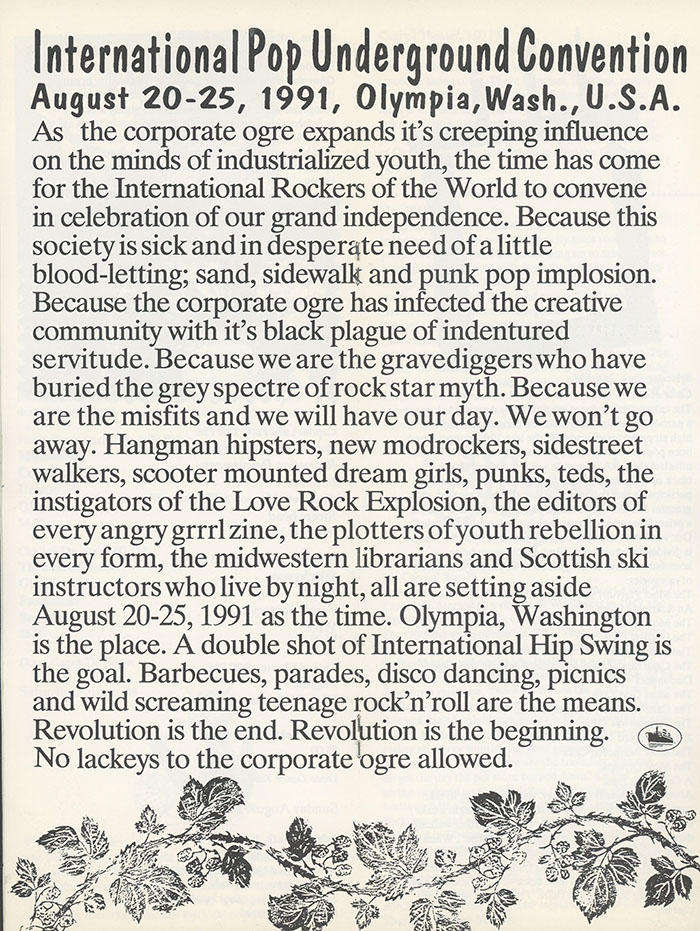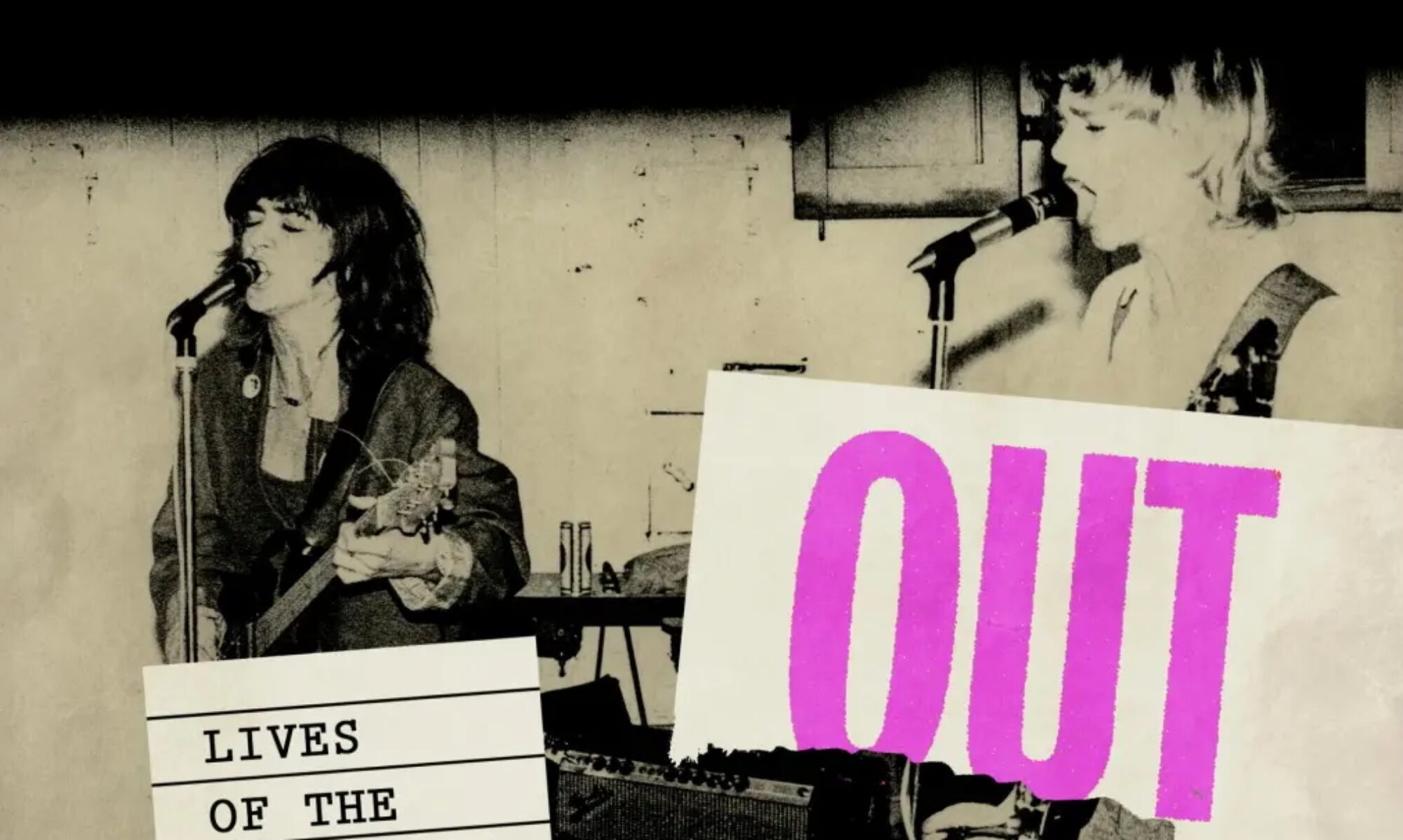We asked a few folks to look back and try to remember what it felt like attending, organizing, and performing at the very influential International Pop Underground Convention, which took place August 20–25, 1991 in Olympia, Washington, was organized by Calvin and Candice from K Records, and featured a crazy good lineup including Beat Happening, Bratmobile, the Pastels, Jad Fair, Kicking Giant, Some Velvet Sidewalk, Bikini Kill, Nation of Ulysses, Sleepyhead, Scrawl, Nikki McClure, Rose Melberg and loads more. This type of festival became a blueprint and surely influenced our foray into party throwing a few years later. Some folks remember it as a magical utopian moment in time, others were stressed and disillusioned. Whatever those who attended felt, it was a pivotal moment for independent labels, great pop and punk music, and a spirit and community still with us today.

Did you attend the convention? What made you want to go?
Nikki McClure: Yes. It felt like it would be the center of the world that week. I had a job in the mountains during the week (field ornithology) and threatened to quit when my boss wouldn’t let me take the week off as promised. He let me go and keep my job. I was willing to risk complete poverty for the Convention. My boyfriend at the time went to Europe with Nirvana to the Reading Festival. That moment felt like a cultural divide. Everything shifted in August 1991.
Erin Smith (Bratmobile): YES! I was a major K kid from ’87 on, so it was a no-brainer I was going. That was the entire center of my universe—virtually EVERY band I loved at the time was playing IPU. I was OBSESSED with Beat Happening! Bratmobile were asked by Calvin Johnson to play as well—a total dream come true! Bratmobile were actually the only band to play 2 shows at IPU—both on Girl Night—8/20, and an early morning show with Kicking Giant and Jad Fair on 8/23.
Michael Galinsky: Sleepyhead got invited to play, largely due to Tae’s suggestion. I don’t think we even had a single out yet, maybe we did… it’s murky, but we had just done our first 10-day, 5-show tour that July. So, we were a little more prepared to play. I might have gone even if we weren’t playing, but I was also pretty broke so it would have been a big reach for me. Thankfully the awesome folks in Treehouse offered us a place to stay, which made it more possible. Allison from Bratmobile lent us her car to go pick up Rachael, our drummer, about two hours before we had to play. All went smoothly until we left the airport and realized we needed gas. She had given us the key to the car but not the gas key, which we discovered when we pulled over to get gas. Thankfully we made it into town and had to jump on stage shortly after we got there.
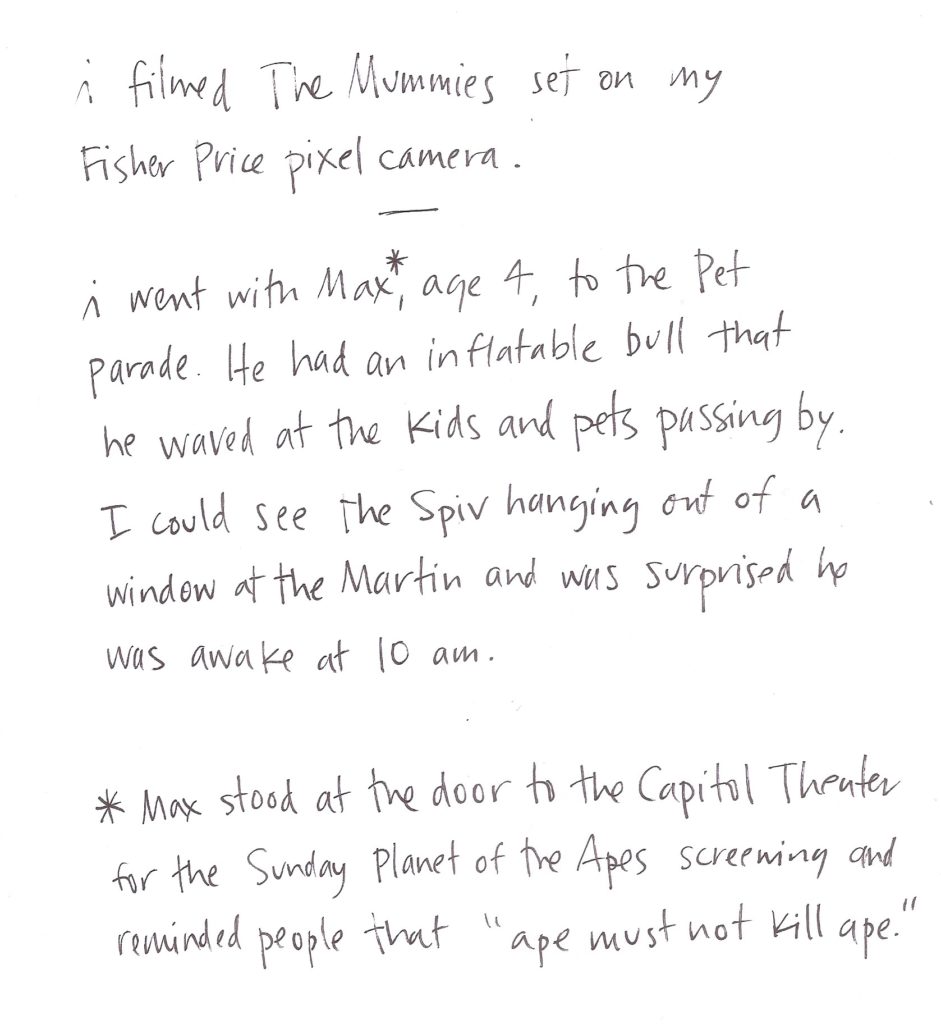
Tobi Vail: Yes. I honestly don’t remember if I wanted to go or not. I mostly grew up in Olympia and I was a part of the K scene as a teenager but after I was assaulted by a stranger at 18 (in my first apartment in Eugene) what I perceived to be traditional gender roles and cute 1950s aesthetic of K no longer spoke to me (if it ever really did). I was in a band with Calvin (’85–89) as a teen and I looked up to him but that experience ended on a bad note. The year before IPU I was part of a feminist awakening of young women in the NW music scene, which eventually led to us starting riot grrrl. We were angry and pushing back against male domination and patriarchy and at that point I feel like most men in the Olympia music scene were threatened by us—exceptions were the teenagers in Unwound and the guys in Nirvana, who were super supportive. We had a little trouble communicating with K when they were distributing our self-released demo tape and ended up pulling it from their mail order to distribute on our own and I don’t think they understood why we wanted to control everything but that was really important to us at the time. So it was nice that the festival was organized by a woman (Candice) who became a co-owner of K. In retrospect I do appreciate that K sold our tape through their mail order and I appreciate their support but I wish that we had been able to communicate with them a little better about sales.
Ira Robbins: I was there and wrote about it in Rolling Stone, which earned me a death threat from Ian Svenonius.
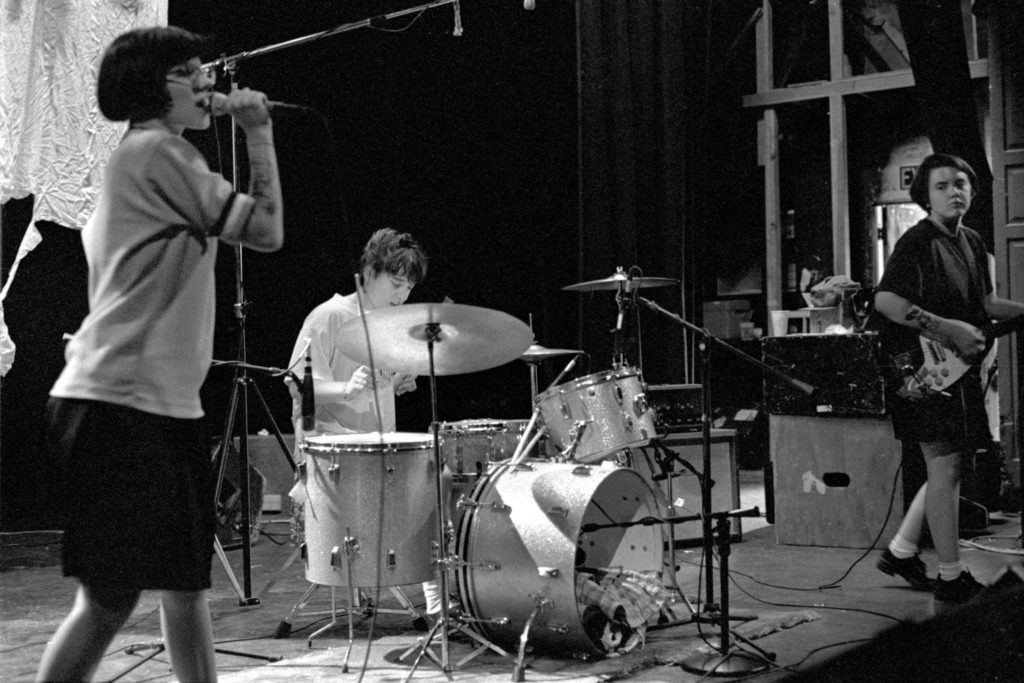
Had there been other festivals like this you’d been to before? What felt different about it?
Nikki M: It really felt like a Convention and not just some shows. A Convention needed banners! So I made some from dyed sheets with sticks found on the old growth forests I was working in. I made them on the floor of the ranger cabin that I lived at during the week, rolled them up and headed to Oly then unfurled them from the windows of The Martin apartments. There was more happening than music. It was a collection of people forming an international underground community and network. It was important work.
Candice Pedersen (IPUC organizer/formerly K Records): I’d never been to a music festival or conference before. The IPU was designed so that the bands and the audience would come to us! But seriously, the IPU convention was a chance to be at a conference that was designed by the kids for the kids.
Erin Bratmobile: Festivals for “our” brand of indie were not so commonplace at this point. Of all things, I’d won tickets to the first Lollapalooza, so attended that in DC the SAME week as IPU, turned 19 that day, then flew to Olympia.
Tobi Bikini Kill: No.
Michael Sleepyhead: We went to a couple of others after this. Lotsa Pop Losers (which wasn’t as big but had a similar inclusive vibe) and Lollipops and Booze, which was more of a schedule of shows with a pass over the course of a week than a festival like this. So, no, this was a truly unique and powerful event.
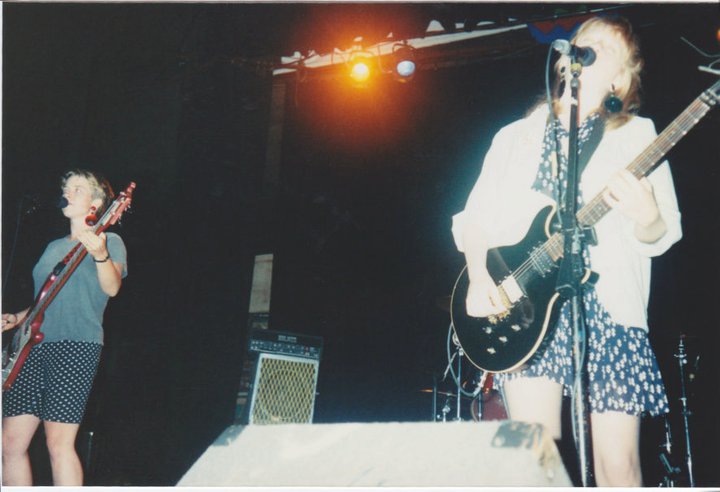
Organizers, what do you remember about putting it together?
Candice Pedersen: Everything and nothing. I remember being adamant that the design should include blackberries as they are Olympia in August in a nutshell. I remember hand making the badges. I remember when it was proposed (not by us!) that there should be a “girl night” and worrying that if it was the first night no one would be there. Which was exactly what didn’t happen. It was the most electric night of the entire festival. I remember the Sub Pop BBQ—it was great to have them as part of the convention even if there wasn’t any food.
Nikki M: I made banners. I helped Candice make invites. Calvin had issued a call to action which is still vital and raw. She wanted formal invites mailed to people. I made a blackberry vine image, which now seems fitting for those hot, sweet, thorn-scratched days.
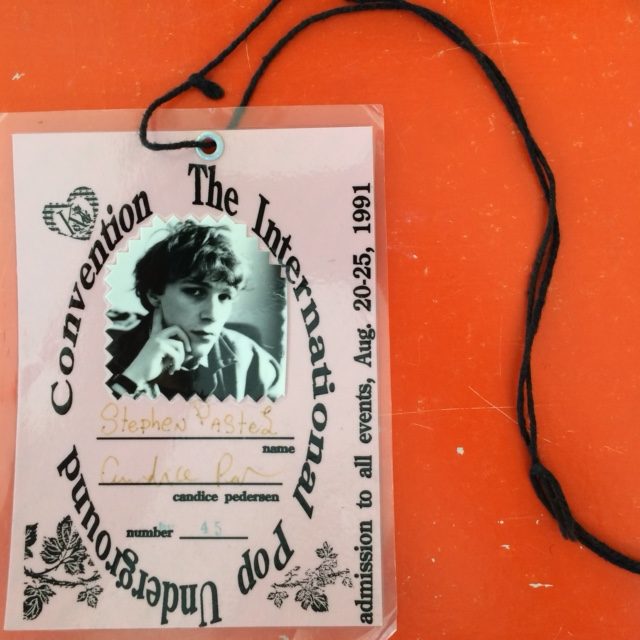
Performers, what did it feel like to be there? What were the fans like?
Stephen Pastel: From our perspective just being invited was really exciting. It was the first time we’d played in the US and it was the first time we’d played a community type event on that scale. Everything about it seemed thought through, joined up—the groups, the audiences, the spaces, the city. We were so impressed by all the work that Calvin, Candice and their friends had put into it—it was so ahead of its time. I remember the Beat Happening show being incredible, seeing them at their best in a beautiful theatre space with an absolutely packed out audience just going wild for them. It felt like we were at the epicentre of something new and the world had suddenly changed for the better.
Rose Melberg: I remember going to my first punk show at 13. all guys of course. it was like Social Distortion and Battalion of Saints and I was standing in the back of the venue in Sacramento. I was tiny. I was up in the top and my first thought was: the safe place is on stage. I was terrified of what was happening in the pit but I wanted to be a part of that and I saw it in my mind. I was having all these ideas of what it would look like and feel like to sing in a punk band, just scream and be above everyone. it was my first punk show and that was the feeling I got. I wanted to be on the stage. partly out of fear and partly out of power but mostly because I wanted to be part of it so bad. I was 19 when got up onstage at IPU. I was terrified. I had a physical reaction to it. my hands shook violently. I wanted to get on that stage so bad but my body wouldn’t even let me. I had to kind of detach because I knew I wanted it so bad—even though my body was telling me “don’t do this”—I couldn’t even hold my guitar pick. I was so desperate to be included. I didn’t want to feel left out. I didn’t want to be in the audience. I wanted to be liked and acknowledged and heard (from chickfactor 18, interview with the Softies).
Nikki M: This was also my first time performing. I sang a few songs at Girl Night, the songs I sang in the woods to ward away bears. It was powerful to hear those songs fill the theater. Those 5 minutes were life altering.The theater was packed. It was the first night and every one was so eager and open to possibility. We were creating our own world.
Michael Sleepyhead: It was wonderful to be there, but no one had even heard of us so it was kind of like going to a film festival with your first film, where you don’t know a lot of folks. Although, this was a little different as we knew a couple of the bands from their visits to NY and we had Tae to make some introductions. It was fun to play for sure, but also kind of hard to do an outdoor show when we had never done anything remotely like that. We were young and excited and it just meant a ton to us to be invited into the community.
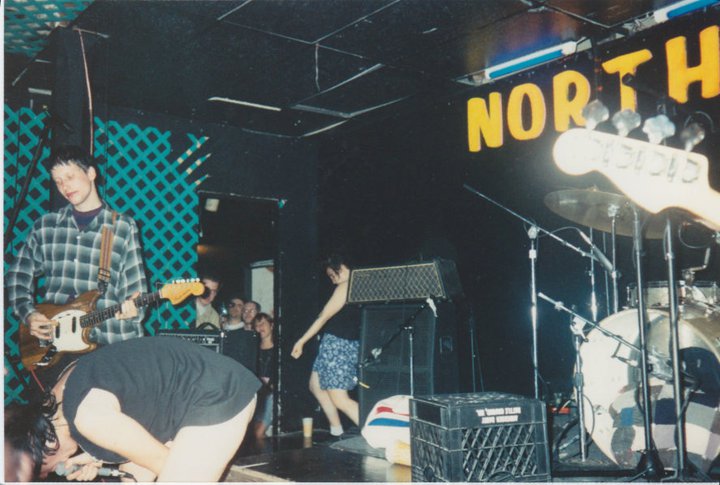
Tobi Bikini Kill: Bikini Kill got to play the festival but we were added late and had to play an afternoon show on a small stage. I feel like someone from DC got us on the bill at the last minute but I really can’t be sure. I remember feeling kind of bummed that we didn’t get to play with Nation of Ulysses who we had been on tour with and spent the summer with in DC but I was happy that we got to play. Unfortunately, we didn’t have a chance to practice that summer as Kathi, our bass player, had gone to Europe by herself. It was a hard show for us. We weren’t ready and had a lot of equipment trouble but I think some of it was pretty good.
Erin Bratmobile: Girl Night especially was completely intense. The stuff of legend now! The launching point for so much. Heavens 2 Betsy played their first ever show at IPU—Rose Melberg as Tiger Trap, too. So I got to witness both Corin Tucker and Rose Melberg’s first times on stage. I remember Corin coming up to me after the show and complimenting me on the Bratmobile set. It was all so new to me, too—I had no idea how to respond!
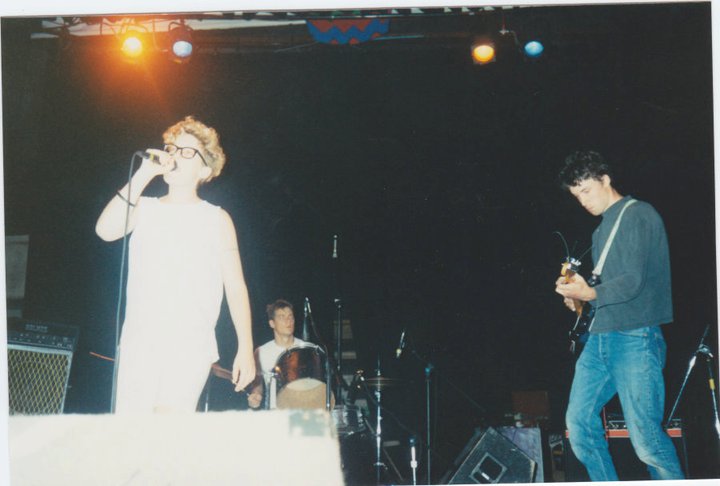
Fans, what do you remember loving about it?
Nikki M: Probably many Performers were Fans 90% of the time. I remember dancing and responding to the immediacy of sound and to the intimacy of hanging out with those who just made you dance so crazy afterwards. It was a Convention, We were all attendees, not so much fan or performer.
Michael Sleepyhead: As a fan I was blown away by seeing a lot of bands I had only heard about, like Bikini Kill, Jad with the Pastels was amazing. Seeing Beat Happening play to a packed house that was all in was astounding. Nation of Ulysses was on fire. the Bratmobile Kicking Giant show was inspiring. It was also nice that the whole thing felt very community focused.
Erin Bratmobile: Olympia is magic. Being able to just WALK and see every band I loved over the course of a week was wild. All of my heroes were playing! When Stephen Pastel asked to borrow my Sears Silvertone amp—well, he was a hero of mine to say the least. Just a couple years before I was buying my first Pastels album, and now, not only was I playing the same festival of them, Stephen liked my amp?! There was not a whole lot of divide between the bands and the fans. The bands were fans, too!
Tobi Bikini Kill: I lived across the street. It was overwhelming. People kept coming over to my teeny tiny apartment. It was nice to have friends in town but there was no escape. I don’t remember the fans, it seemed like everyone here was in a band and it was just like people in the audience getting up on stage and vice versa. That was pretty cool.
Rich Siegmeister: I was friends with Sleepyhead but they made their own arrangements and I traveled there by myself. I needed a hotel. K records was offering to help and it sounds crazy now but they randomly placed people together. I ended up in a room with a nice guy. We didn’t hang out much together but when it came time to sleep, he came out in silvery silk pajamas. We were each in our single beds but crazy. Also I was hanging outside talking to some nice people from New Zealand. I was telling them how I loved the Clean and the Chills and this all girl group Look Blue Go Purple. They got a look on their faces and then one of them yelled out “Lizzie you got a fan.” A member of the band was there and couldn’t believed I was listening to them.
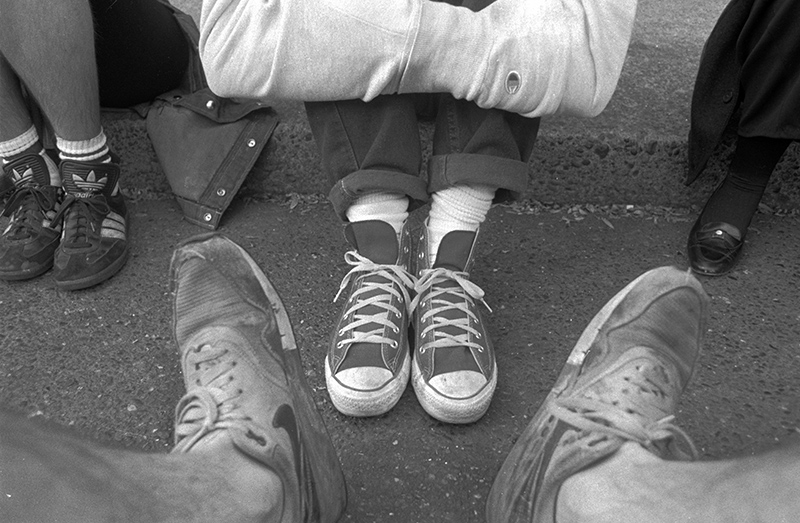
It was a very exciting new fresh time for music and culture: What did the community feel like then and is some of it still intact for you?
Candice P: The community felt intimate and yet also disparate. Everyone was together but still had their own thing going, which I appreciate. I wouldn’t say the community from then is still intact for me. But, many of the friendships I had then and made then are still the most important friendships I have today. And many faded as they do.
Erin Bratmobile: It’s hard to understand in retrospect, and it might not even be fully understood unless you were there, but IPU was like the big bang and really everything came from that in a lot of ways. It’s all still totally intact. Friendships formed over that week for so many have been life long. It was life changing, and that’s not hyperbole.
Michael Sleepyhead: That community is still foundational for me. Tae drew the cover for our first single and he designed my photo book two years ago. I went on to make films but my foundational community is still the music one. It is wildly more open and supportive than the film world.
Nikki M: The community was always present then and possibilities were always blooming. Now that spirit is there, but things aren’t nearly as spontaneous or untamed. It feels like it might just be me, but I think we all are thinking that…maybe? We all have embers we carry from that time and still use in our lives.
Tobi Bikini Kill: For me it was a little bit of a sad time. Nirvana wanted to play and they were not allowed because they had signed to a major label. The ’80s were ending and the ’90s were starting. L7 were great. I was confused that they got to play but Nirvana didn’t. I remember wishing that they didn’t sign but understanding why they did. I didn’t think we needed corporations to buy and sell our music and I think that was kind of the main idea of IPU.
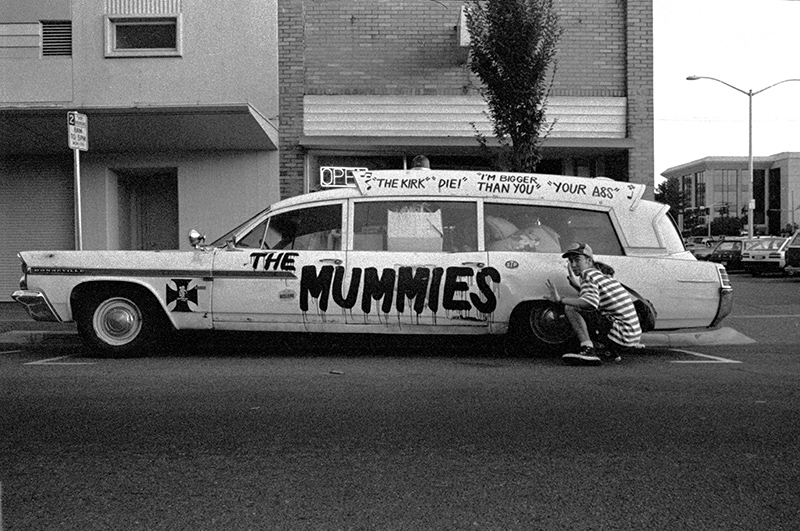
What performances do you remember? New artists discovered?
Candice P: I love all my children equally.
Erin Bratmobile: I STILL hear IPU stage banter replaying in my head. Thee Headcoats: “Oh, fuck your mother.” L7: “Keep your elbows off the knockers!!” The Bikini Kill set was absolutely revolutionary. The Mummies were incredible! I remember heading straight to the pit—all of Bikini Kill and all of Bratmobile together—to watch the Nation of Ulysses. After their blistering performance, I remember James Canty coming back out onstage to humbly announce the release of their first record. I was SO PROUD!
Tobi Bikini Kill: Bratmobile played two sets I think and they were very good. Heavens To Betsy at girl night were incredible. Mecca Normal were great, as always. I remember being excited The Pastels were going to play but I would have been more excited to have seen them a few years earlier when they were still one of my favorite groups. Nation of Ulysses was my favorite group at the time but I remember Thee Headcoats as being the best group at IPU by far. They had played Olympia the year before and both shows were nuts. I think the band I discovered at the fest is The Mummies—they were so good and fun and funny. Fugazi was great too.
Nikki M: Fugazi. Heavens to Betsy. Rose. Jad Fair. Beat Happening. I Scream Truck. Nation of Ulysses. The Pastels. Cake walk. A picnic with no food.
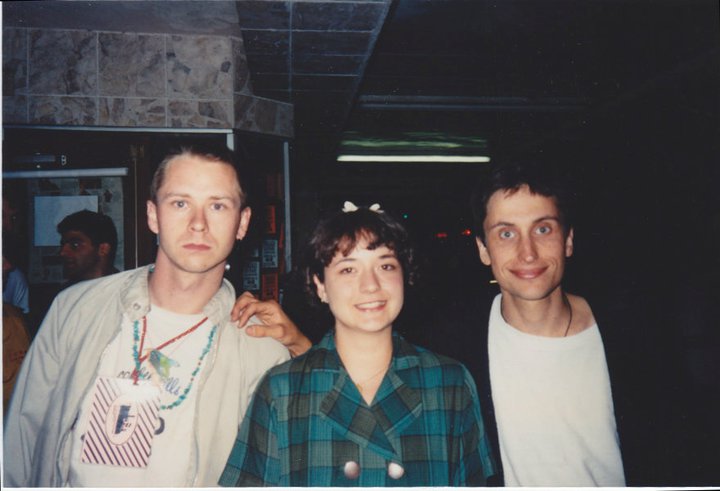
What was the vibe in general?
Candice P: For me the vibe was hectic. The Pastels were staying in my apartment, I had to co-host the event, and I was trying to spend time with friends. The time flew by. I was supposed join the Pastels on their west coast tour after the convention but I was too exhausted/sick to go. Chris Jordan so kindly took my place at the last minute.
Nikki M: Festive. Spontaneous. After this past year, it seems fantastical that we once so freely mingled and danced and ate cake. It was powerful. All dreams became possible.
Tobi Bikini Kill: A little stressful. Like too much going on at once. It was also very odd to have people not from here acting like it was quaint or cute or utopian or something and not really understanding where they were. By 1991, Olympia was no longer a milltown but the brewery was still here. It was still pretty working class, the center of southwest Washington, which was populated by loggers and timber workers. It was a kind of rough place to live if you were nonconformist. The Evergreen State College is a public school and very progressive but it’s very small. Olympia never really was a liberal college town because the population of students has always been just a few thousand and my impression is that most people who end up going there are kids from the NW who couldn’t afford or get into a more expensive school. Local kids who went to punk shows and hippies from Evergreen got targeted and bullied and physically assaulted by guys in pickup trucks downtown. The IPU people didn’t really seem to notice any of that. Also it rains more than 150 days a year in Olympia and it was very sunny that week. It all seemed like a dream.
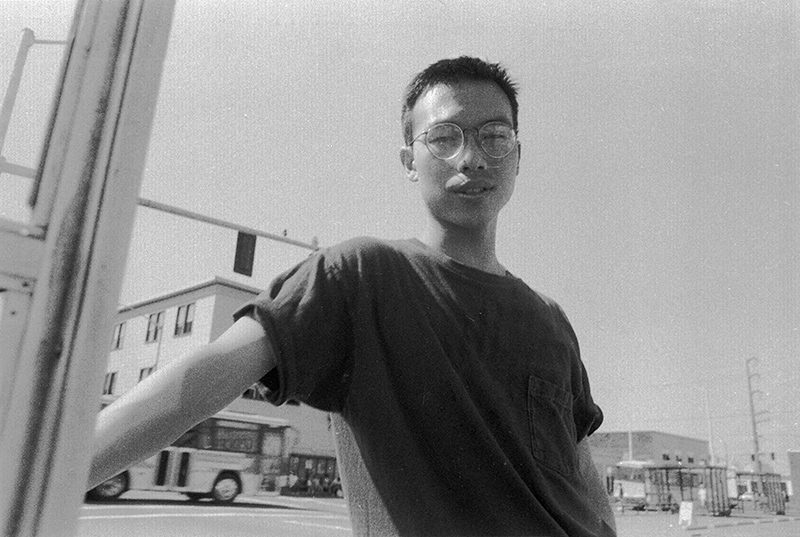
Why do you think there was this link between D.C. and Olympia? Was it down to individuals or was it just a shared ethos?
Nikki M: Both! Individuals sharing an ethos but with differences between the East and West. Both explored and created cultural freedom. For the Cake Walk, Cynthia Connolly (DC and Dischord) made a vegan chocolate cake topped with freshly picked blackberries, if I remember correctly. That cake seemed the perfect pairing of the 2 sides of the country.
Candice: It’s a shared ethos.
Erin Bratmobile: I think it began as certain individuals and grew to be a shared ethos. Calvin Johnson lived in Bethesda, MD, in the late ’70s/early ’80s, so was involved in the DC punk scene before going back to Olympia and Evergreen. Then the cross-pollination of the scenes continued. DC had great record stores like Yesterday & Today that stocked K titles, and Calvin visited family in the DC area all through the ’80s into the early ’90s, always bringing along records and making more connections. I connected with being a K and indie kid before I then grew to intensely love Dischord and the DC underground. Nation of Ulysses and Fugazi were my gateway drug in that regard, if that makes sense!
Tobi Bikini Kill: Olympia is the capital of Washington so there are a lot of natural connections—one of them being that Calvin went to high school in both places.
Michael Sleepyhead: I think it was both the shared ideals and the musical influences created a strong cross current that made sense—I felt like going on tour was like being in the pony express. Bands carried information and ideas from one town to the next and in some ways DC and Oly were kind of the terminuses at the end of the routes.
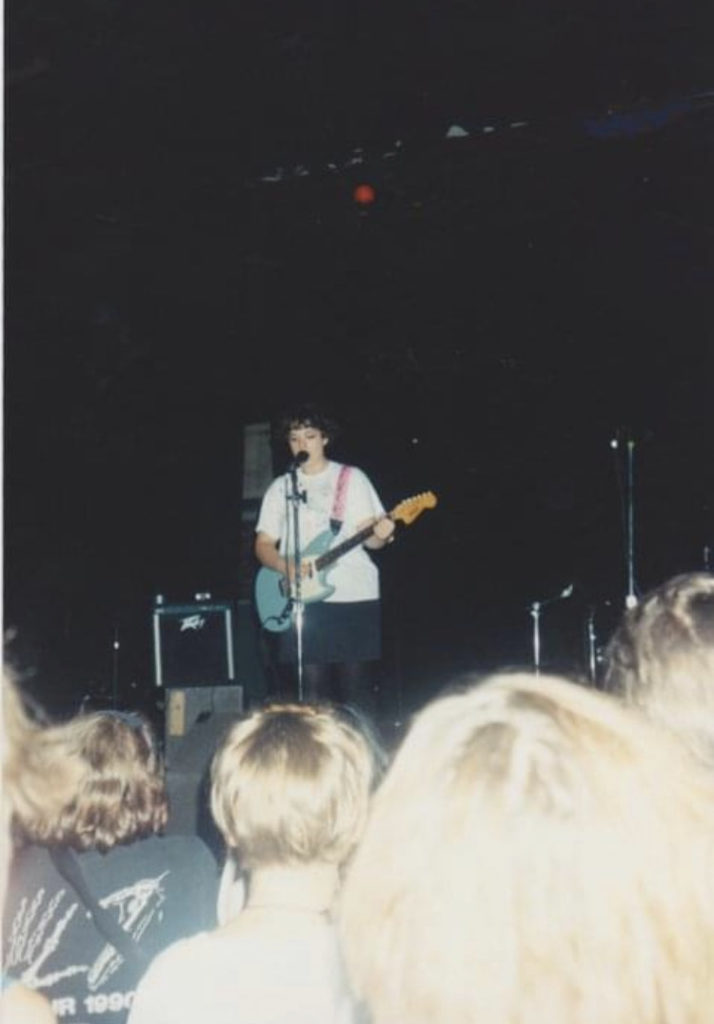
Was it covered by mainstream media then and if so, did they get it?
Nikki M: Who cared? We were mostly happy to outnumber the logging trucks.
Tobi Bikini Kill: Yes and no.
Candice: I think there was national media outside of indie fanzines. I remember Ira Robbins wrote something. But, if people “got it” or not didn’t concern me. “It” was something for different for everyone. And, I didn’t care if media got what it was to me.
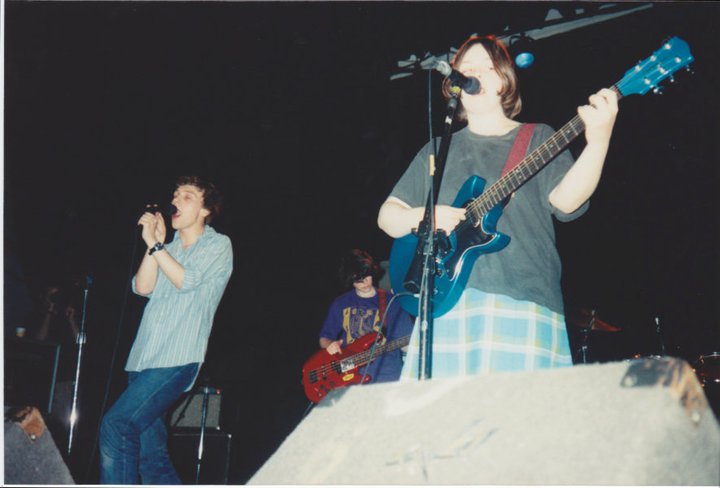
Is there anything else you remember?
Candice: I don’t remember meeting Scotty but he remembers meeting me (I asked him how old he was!). But, I’m glad we were both there because one year later we started dating and 29 years later we’re still together.
Nikki M: Driving with Calvin to the Sup Pop picnic but there was no food left. People signing the back of the Kill Rock Stars albums like they were yearbooks with the silkscreen ink still a bit tacky. Melvins at the park. Blueprint posters taped to my door fading over time. Was this the festival that the theater cat peed on the shirts?
Erin Bratmobile: The first Kill Rock stars comp came out on vinyl the week of IPU, all hand silkscreened covers, with no time even to put the art on the back yet. So all of the copies given to the bands that were on the comp had hand done covers and blank backs. Several of us, myself included, got autographs of the other bands on the blank backs, high school yearbook style.
Tobi Bikini Kill: The first Kill Rock Stars compilation came out at IPU. The front was silkscreened and the back was blank so everyone used the back like a yearbook and signed each other’s records. That was pretty cool.
Michael Sleepyhead: I don’t have a good tactile memory. Thankfully I have pictures, though not nearly enough from that event. What I do recall was that the whole summer felt the beginning of something for me. It takes a lot of hope to start a band and then commit to it in the way that we felt we needed to. The summer before we had moved to Providence to live together. It wasn’t an easy transition but we muddled through and became more of a band. We started to play out in NY a lot which connected us with NY bands like flying saucer, ruby falls, antietam, and many others. II spent months booking that first tour which we went on a few weeks before IPU. On that trip we met some incredibly creative people and that just changed my life. Then we went out to Olympia and that sense of being part of a community became some much more profound.
See more photos of IPUC by Michael Galinsky here.
